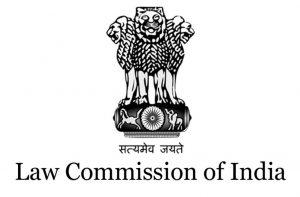Law Commission rejects suggestion to reduce age of consent under POSCO Act, says will hamper productiveness of the Act

The Law Commission of India has rejected the suggestion to reduce the age of consent to 16 years under the Protection of Children from Sexual Offences (POCSO) Act.
The Commission observed in its 283rd report on the ‘Age of Consent under the POCSO Act that after a careful review of existing child protection laws, various judgements and considering the maladies of child abuse, child trafficking and child prostitution that plague the Indian society, it had come to the conclusion that it was not advisable to tinker with the existing age of consent under the POCSO Act.
The report said reducing the age of consent would not be advisable as a child was not capable of giving consent.
Noting that protecting the children from any sexual abuse or exploitation was of paramount consideration, the report said reducing the age of consent would be detrimental to fulfilling the objective of the Act.
Taking in view the observations made by the Supreme Court as well as the Parliamentary discussions that took place after the introduction of the POCSO Bill in 2011, the Commission said it was amply clear that the law was strict in its application and the element of “consent” of a child can have no role to play whatsoever.
It said when the victim was a child, there could be no question of consent and any claim of there being consent was totally meaningless.
The Commission said it submitted the report after consulting the National Commission for Protection of Child Rights (NCPCR), former judges, lawyers, child rights activists, NGOs and academicians who are experts in the field. The Commission has also sought relevant data from High Courts and the National Crime Records Bureau.
It mentioned several arguments that emerged out of its consultative process, to not interfere with the age of consent under the POCSO Act.
The report stated that since the POCSO Act was an important tool to combat child trafficking and child prostitution, altering the definition of “child” under the Act to under 18 years of age would hamper its effectiveness.
The report further put forth the argument that trafficking can be done in the garb of child marriage and the POCSO Act was an important tool to deal with such situations.
The Report argued that reducing the age of consent could lead to rise in child marriages and further exploitation of the girl child.
It said the Prohibition of Child Marriage Act, 2006 (PCMA) was a weak law as it did not deal with the question of sexual relations with a minor spouse, which the POCSO Act has helped remedy.
Any decrease in the age of consent would negatively impact the age-old fight against child marriage by providing parents an opportunity to marry off minor girls. PCMA is silent on age of consent and sexual relations with a minor, with the POCSO Act filling this void, especially after Exception 2 to Section 375 of IPC was read down by the Supreme Court in 201 7.
The Parliament was already considering increasing the age of marriage for girls to 21 years, at par with boys and thus, any decrease in the age of consent would be against the tide of rational change, it added.
The post Law Commission rejects suggestion to reduce age of consent under POSCO Act, says will hamper productiveness of the Act appeared first on India Legal.
from India Legal https://ift.tt/cLx6zXQ
Comments
Post a Comment